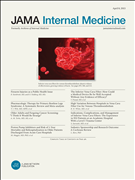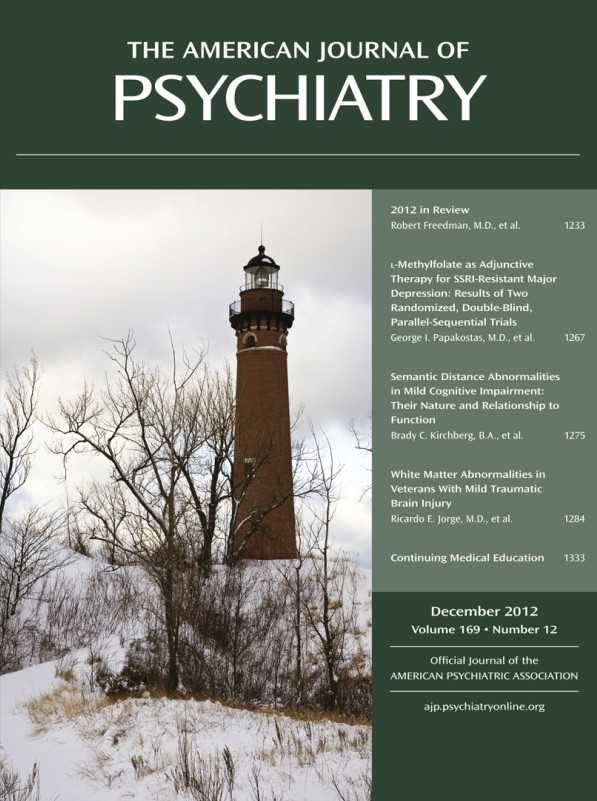JAMA Intern Med:SSRI或与围术期患者不良事件风险升高相关
2013-05-07 高晓方 译 医学论坛网
美国一项研究表明,围手术期接受5-羟色胺再摄取抑制剂(SSRI)治疗与不良事件高风险相关。但尚需通过前瞻性研究方可确定患者因素或是SSRI自身导致风险升高。论文于4月29在线发表于《JAMA内科学》(JAMA Intern Med)。 此项回归性研究纳入接受大手术治疗的18岁及以上患者。利用多变量层次模型评估SSRI应用与患者转归的相关性,并利用药房资料确定患者是否在
美国一项研究表明,围手术期接受5-羟色胺再摄取抑制剂(SSRI)治疗与不良事件高风险相关。但尚需通过前瞻性研究方可确定患者因素或是SSRI自身导致风险升高。论文于4月29在线发表于《JAMA内科学》(JAMA Intern Med)。
此项回归性研究纳入接受大手术治疗的18岁及以上患者。利用多变量层次模型评估SSRI应用与患者转归的相关性,并利用药房资料确定患者是否在围手术期间应用SSRI。主要转归指标为院内死亡、住院时间、30天内再入院、出血事件、输血以及室性心律失常发病率。
结果显示,应用SSRI的患者更可能伴有肥胖、慢性肺疾病、甲状腺功能减退和抑郁(P<0.001)。校正之后,应用SSRI的患者出现院内死亡[校正比值比(OR)1.20]、出血(OR1.09)和30天内再入院(OR1.22)的机率较高。在倾向匹配分析中可观察到相似结果,但伴抑郁患者的院内死亡风险有所减弱。
与抑郁相关的拓展阅读:
- Biol Psychiat.:实验药物有望‘在数分钟内’帮助治疗抑郁
- 生活方式干预延缓抑郁症状进展
- Pain Medicine:初级护理患者的疼痛、慢性疾病、抑郁症与IL-6
- Lupus:血清肿瘤坏死因子-α水平与系统性红斑狼疮患者的生活质量和抑郁症状相关
- JAMA Psychiatry:DSM-IV中关于重性抑郁诊断标准的多个遗传因素证据 更多信息请点击:有关抑郁更多资讯

Perioperative Use of Selective Serotonin Reuptake Inhibitors and Risks for Adverse Outcomes of Surgery
Importance
Single-site studies have described an association between use of selective serotonin reuptake inhibitors (SSRIs) and adverse outcomes of surgery. Multicenter studies including a broad range of surgical procedures that explore rare outcomes, such as bleeding and mortality, and that account for indications for administration of SSRIs are needed.
Objective
To determine whether perioperative use of SSRIs is associated with adverse outcomes of surgery in a national sample of patients.
Design
Retrospective study of patients 18 years or older who underwent major surgery from January 1, 2006, through December 31, 2008, at 375 US hospitals. We used multivariable hierarchical models to estimate associations between SSRI use and our outcomes. Pharmacy data were used to determine whether a patient received an SSRI in the perioperative period.
Setting
Three hundred seventy-five US hospitals.
Participants
Five hundred thirty thousand four hundred sixteen patients 18 years or older.
Exposure
Perioperative use of SSRIs.
Main Outcomes and Measures
In-hospital mortality, length of stay, readmission at 30 days, bleeding events, transfusions, and incidence of ventricular arrhythmias.
Results
Patients receiving SSRIs were more likely to have obesity, chronic pulmonary disease, or hypothyroidism (P < .001 for each) and more likely to have depression (41.0% vs 6.2%, P < .001). After adjustment, patients receiving SSRIs had higher odds of in-hospital mortality (adjusted odds ratio, 1.20 [95% CI, 1.07-1.36]), bleeding (1.09 [1.04-1.15]), and readmission at 30 days (1.22 [1.18-1.26]). Similar results were observed in propensity-matched analyses, although the risk of inpatient mortality was attenuated among patients with depression. Sensitivity analyses suggest that, to invalidate our results, an unmeasured covariate would have to have higher prevalence and be more strongly associated with mortality than any covariate included in our models.
Conclusions and Relevance
Receiving SSRIs in the perioperative period is associated with a higher risk for adverse events. Determining whether patient factors or SSRIs themselves are responsible for elevated risks requires prospective study.
本网站所有内容来源注明为“梅斯医学”或“MedSci原创”的文字、图片和音视频资料,版权均属于梅斯医学所有。非经授权,任何媒体、网站或个人不得转载,授权转载时须注明来源为“梅斯医学”。其它来源的文章系转载文章,或“梅斯号”自媒体发布的文章,仅系出于传递更多信息之目的,本站仅负责审核内容合规,其内容不代表本站立场,本站不负责内容的准确性和版权。如果存在侵权、或不希望被转载的媒体或个人可与我们联系,我们将立即进行删除处理。
在此留言










#不良事件风险#
96
#围术期#
66
#SSRI#
58
#Med#
58